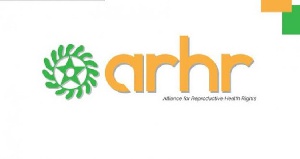Health News of Tuesday, 15 December 2020
Source: GNA
Alliance calls for Implementation of Free Healthcare for the poor
The Alliance for Reproductive Health Rights has called for the implementation of a Free Healthcare at the point of need to make it accessible to the poor.
The call followed concerns about the number of Ghanaians who do not have access to health care due to poverty.
In a statement to mark International Universal Health Coverage, UHC, Day, Policy and Advocacy Coordinator of the Alliance, Leonard Shang- Quartey said the Free healthcare at the point of need should be an improvement on the existing National Health Insurance Scheme.
It said the Free Healthcare would eliminate the financial element of registration and renewal and enable all persons classified as extremely poor to benefit from it.
“The NHIS is widening access but has left the poor behind. Though the NHIS has been a major game-changer in terms of ensuring financial risk protection for many Ghanaians, its current coverage arrangements have rendered it less effective at ensuring equity.
The total number of the active membership of the NHIS was about 12 million people as at the end of 2019. Of this number 5.6 per cent (672,000) were covered by the indigent provision of the scheme and provided NHIS services without charge.”
The statement said although Ghana had expanded and improved its health care system through programmes such as the NHIS and the Community-based Health Planning and Services (CHPS) to prevent catastrophic health spending while bringing health to the doorsteps of Ghanaians across the country, more needed to be done to achieve greater success.
It said about 6.1 Million Poor People and 1.7 Million Extremely Poor People in Ghana still did not have access to health care under Ghana’s current health care systems arrangements.
It said lessons from COVID-19 have shown that spending in the health sector secures the economy.
The statement said the development strengthened the resolve and position of the UHC Campaigners that ill health of people, be they communicable or non-communicable, affected not only the individual patient but also the family, the community and the entire country.
“This is precisely why civil society and other actors have been demanding an understanding of health care service provider which extends services to all to protect everyone while also ensuring continuous economic and social progress for people.
Though the world is yet to count the full economic cost and losses as a result of COVID-19, the important lesson of the closeness between people’s health and the economy will never be forgotten,” the statement added.
The statement called for rapid steps toward accomplishing the UHC goal despite the slight progress recorded through collaboration between CSOs and Government, which resulted in improvements in the Ghanaian Healthcare system over the last few decades.
However, Ghana’s health indicators showed there are still gaps in Ghana’s health system, it said.
“This means that successive governments must commit to ensuring the availability and accessibility of healthcare to a lot more people, especially those in underserved and hard to reach communities in different parts of the country,” the statement added.











